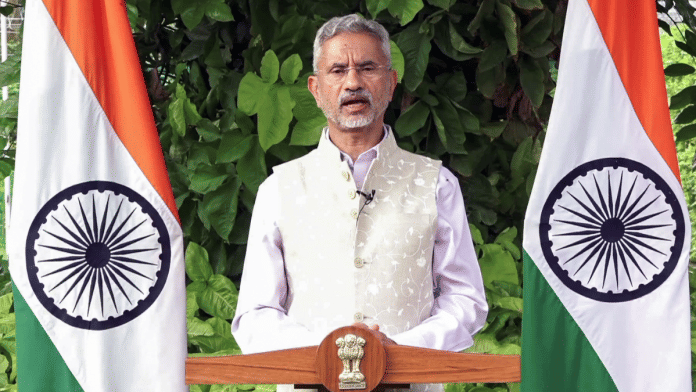New Delhi: External Affairs minister S Jaishankar will attend the Quad foreign ministers’ meeting in Japan from 28 to 30 July. He will meet his counterparts from Australia, Japan and the US, and the meeting is expected to lay the ground for the Quad leaders’ summit to be held India later this year. The summit was initially scheduled to be held in January but was postponed due to scheduling issues.
When they meet in Tokyo, the four foreign ministers will review progress on Quad initiatives and working groups and address the priorities of the region through the delivery of public goods. They last met on the margins of the UN General Assembly in New York last September.
On 12 July, National Security Adviser Ajit Doval spoke to his US counterpart, Jake Sullivan, and discussed a wide range of issues of bilateral, regional and international concern, including forthcoming high-level engagements under the Quad framework such as the upcoming meeting.
Last September, a joint statement issued by the Quad foreign ministers urged countries against the transfer or procurement of arms from North Korea. The statement came a week after North Korean supreme leader Kim Jong Un visited Russia, raising concerns about potential weapons transfer deals between the two countries.
Unlike the Quad foreign ministers’ meet last March, September’s joint statement did not mention the debt crisis facing certain developing countries. However, it did highlight global food security and the Black Sea Grain Initiative.
“We are deeply concerned about the global food security situation and support the efforts of the UN in the resumption of the Black Sea Grain Initiative,” read the statement issued late last year.
The Black Sea Grain Initiative was signed between Russia and Ukraine, who are major grain exporters and are currently at war.
At the upcoming meeting in Tokyo, the Quad foreign ministers are also expected to discuss regional and international issues.
India, which has tried to perform a balancing act between the West and Russia, faced its greatest test yet with Prime Minister Narendra Modi’s recent visit to Moscow earlier this month. The visit, which prompted stern remarks from Kyiv, was not looked upon favourably by the Biden administration. A few days after Modi’s visit, US Ambassador to India Eric Garcetti remarked that in times of conflict, there’s “no such thing as strategic autonomy”.
Also read: Indian Ocean has suddenly become ‘Indo-Pacific’ due to geopolitics, says Sri Lanka President
The Quad joint statement in September had expressed deep concern about the Russia-Ukraine war and mourned its “terrible and tragic humanitarian consequences”. “We underscore the need for a comprehensive, just, and lasting peace in Ukraine in accordance with international law,” read the statement.
It is likely that similar language on the conflict will be adopted in the upcoming joint statement next week.
This will also be the first meeting of Quad foreign ministers since the Israel-Gaza war broke out last year, but it is unclear whether the conflict will feature in the upcoming joint statement.
This week, Japan imposed sanctions on Israel for the first time. It froze the assets of four Israeli settlers Tuesday for committing “violent acts” against Palestinian communities in the West Bank. This followed targeted sanctions imposed by the US, Canada, France and UK on Israeli settlers in the West Bank this summer.
After Tokyo, Jaishankar will visit neighbouring Laos to participate in the foreign ministers’ meeting under ASEAN from 25 to 27 July.
(Edited by Tikli Basu)
Also read: EAM Jaishankar meets with Qatari PM. Energy, investment & people-to-people ties discussed






